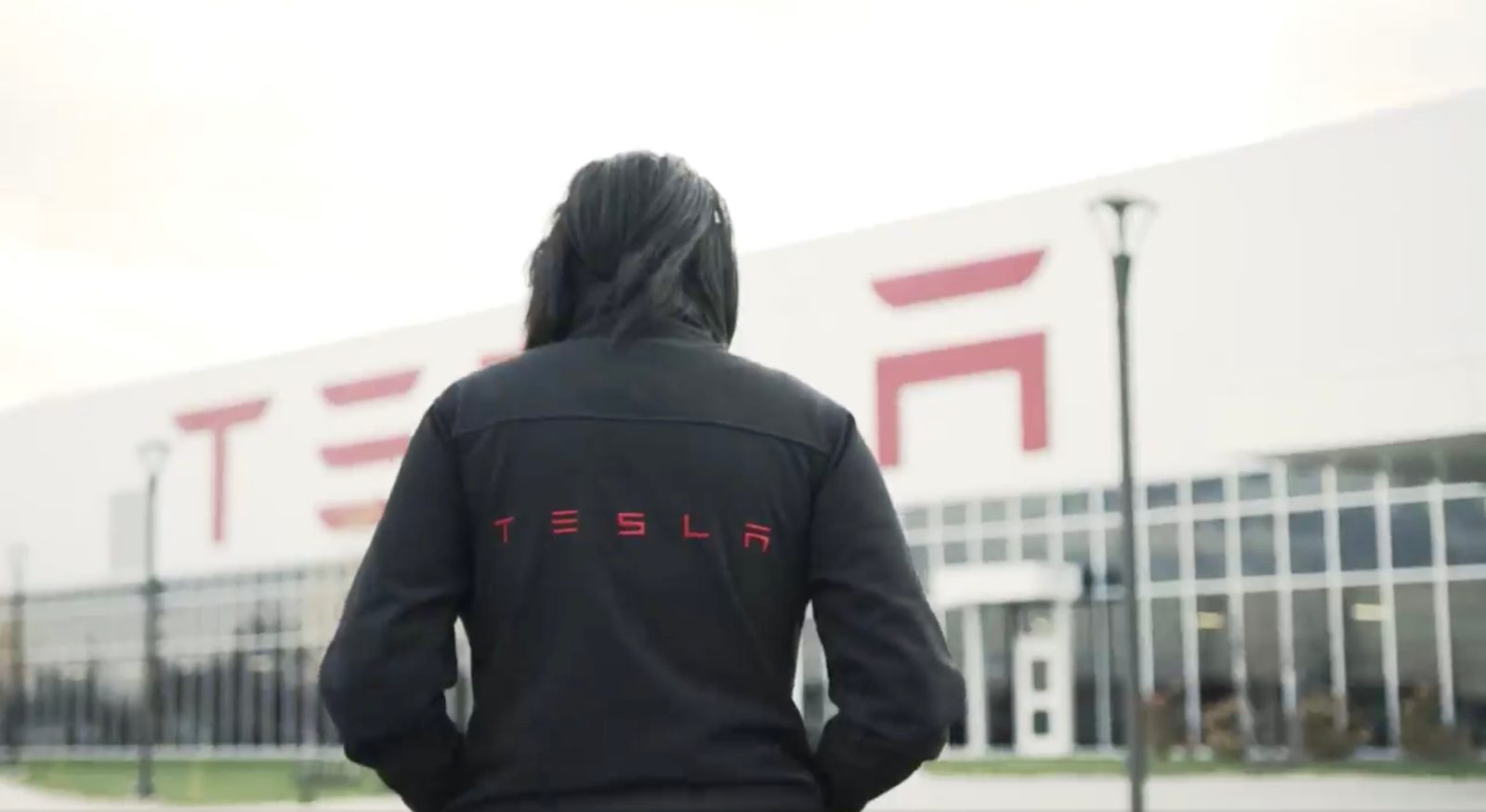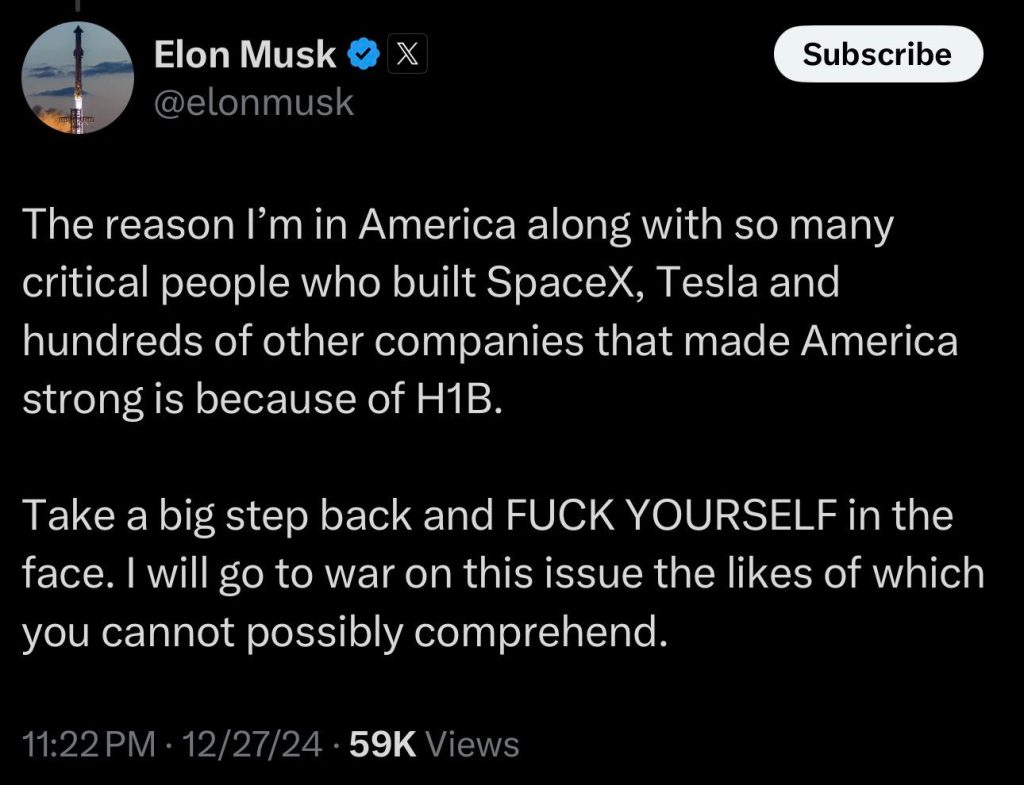
Tesla has changed a few of its US staff who have been let go as a part of a giant wave of layoffs earlier this 12 months with overseas staff utilizing H-1B visas, which CEO Elon Musk is now campaigning to extend.
Over the past week, Elon Musk has been selling the rise of H-1B visas, that are used to convey overseas staff into the US for “specialty occupations.”
Certified overseas staff have to be sponsored by an organization to get the visa, which lasts three years, extendable to 6 years, after which the holder must reapply.
The visa holder should keep employment on the visa sponsor to retain the work visa. The employee must go away the nation if the employment ends for no matter cause. This has led to some criticism because it offers large energy to the employer and might result in a contemporary model of indentured servitude.
Whereas there are apparent advantages to bringing expert staff into the US, persons are divided on the problem as a result of these staff are sometimes paid lower than US staff, placing detrimental strain on compensation, particularly within the tech trade, on prime of the ethical questions on holding visas over the heads of overseas staff.
That’s why the US Congress has mandated a 65,000 visa cap limiting the variety of H-1B visas that may be issued every fiscal 12 months, plus an additional 20,000 for overseas individuals popping out of graduate packages at US universities.
Tesla has been a giant consumer of these visas, and its CEO, Elon Musk, has been utilizing his newfound political affect to advertise rising the cap of H-1B visas. He obtained vital pushback from his new pals on the fitting aspect of the political spectrum within the US, who see this visa as getting used to steal jobs from Individuals.
He’s fairly passionate in regards to the problem, to say the least:

To be honest, Musk didn’t come to the US on a H-1B visa. He got here on a scholar visa, and later, his personal brother admitted that they have been unlawful immigrants within the early days of launching their Zip2 startup within the US.
Tesla’s use of H-1B visas
Over the previous couple of days, a number of present and former Tesla staff reached out to Electrek to disclose that Tesla ramped up its use of H-1B visas to exchange US staff it let go throughout a wave of layoffs earlier this 12 months.
We reported that roughly US 15,000 staff have been let go at Tesla round April 2024. Each division was affected, however the layoffs have been concentrated in Texas and California, the place Tesla has extra staff than wherever else.
Present and former Tesla staff mentioned that lots of the laid-off US staff have been changed by overseas staff utilizing H-1B visas.
These claims are backed by US Division of Labor knowledge, which present that Tesla requested over 2,000 H-1B visas through the time it was shedding US staff (through Reddit):

Once more, there’s a cap of 65,000 visas for your complete US yearly, and Tesla alone tried to recover from 3% of them.
Tesla staff mentioned that many staff let go have been extra senior engineers with increased compensation they usually have been changed with junior engineers from overseas nations at a decrease pay.
Electrek’s Take
To be clear, I’m not taking a stance on H-1B right here. It looks as if there needs to be good makes use of for this visa, nevertheless it actually will be abused. My aim is to share extra data that might clarify why Elon would need extra of this visa for his companies, and possibly not for the fitting causes.
On the core, individuals see the issue of hiring staff from different nations who’re prepared to work for decrease pay than US staff – taking jobs from Individuals and placing strain on general compensation within the US.
There’s actually worth to the argument. Elon’s counterargument is that the US doesn’t have sufficient expert staff, and he wants to rent individuals from different nations to compensate.
This argument additionally has some worth, particularly for particular sectors, like manufacturing engineering, which has grow to be much less standard within the US.
Nonetheless, at Tesla and with Elon, the issue is far deeper than this.
The issue stems from the employer’s weight over the employees as a sponsor of their visas. Elon is famously laborious on staff, and he doesn’t like the standard 40-hour workweek. He usually pushes Tesla staff to work 60 to 80 hours per week.
Many Tesla staff have fortunately finished this for years, and the primary motivator has been the assumption in Tesla’s mission to speed up the appearance of electrical transport so as to curb local weather change.
Some individuals nonetheless imagine on this mission, however Elon has eroded it over the previous couple of years by shifting concentrate on self-driving and advocating for eradicating EV incentives within the US. It’s turning into more durable to make individuals imagine that Tesla’s predominant aim is to speed up the appearance of EVs when its CEO is speaking extra about Tesla turning into “essentially the most useful firm on the planet” than its influence on local weather change. And let’s not overlook that he has spent an incredible quantity of effort and cash during the last 12 months to get deniers of the human influence on local weather change elected.
However he has discovered one other efficient technique to encourage staff to work more durable and for longer hours: maintain a visa over their head.
The character of the H-1B visa being connected to your employer places large strain on the employees.
On prime of it, Tesla, like many different firms utilizing H-1B visas, tends to rent from nations the place longer workweek are already the norm. For instance, India is already totally on a 6-day workweek.
I don’t wish to Tesla staff killing themselves working 80 hours per week, but when they do it passionately, by alternative, for what they imagine to be an ideal mission, it’s laborious to argue towards that. It’s their alternative.
But when they do it as a result of they need the “American dream” and they’re afraid that getting let go will kill or decelerate their likelihood of immigrating as a result of they’re within the nation on a H-1B visa, that appears like exploitation to me.
FTC: We use revenue incomes auto affiliate hyperlinks. Extra.



